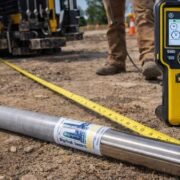In an era where environmental consciousness is paramount, businesses are increasingly recognizing the importance of adopting sustainable practices in their operations. This shift is particularly evident in the courier services sector, where the last mile—the final leg of a product’s journey from a distribution center to the end user—has become a focal point for implementing eco-friendly initiatives.
Embracing Eco-Friendly Packaging Solutions
One of the key aspects of creating a sustainable business courier service involves a shift towards eco-friendly packaging solutions. Businesses are now exploring alternatives to traditional packaging materials, opting for options that are recyclable, biodegradable, or made from post-consumer recycled materials. This not only reduces the environmental impact of packaging waste but also aligns with the values of environmentally conscious consumers.
Electric Vehicles: Driving Towards a Greener Future
The adoption of electric vehicles (EVs) in the courier industry is a significant step towards reducing the carbon footprint of last-mile deliveries. Businesses are increasingly investing in electric vans and bikes, which not only contribute to lower emissions but also serve as a visible commitment to sustainable transportation practices. As technology advances, the range and efficiency of electric vehicles continue to improve, making them a viable and eco-friendly option for last-mile delivery.
Microhubs and Urban Consolidation Centers
Microhubs and urban consolidation centers are strategic solutions that play a pivotal role in sustainable last-mile delivery. By establishing smaller distribution points in urban areas, businesses can optimize routes, reduce delivery distances, and employ greener transportation methods such as bicycles and electric cargo bikes. This localized approach not only minimizes environmental impact but also enhances delivery efficiency in congested city environments.
Optimizing Delivery Routes for Efficiency
Efficient route optimization is a cornerstone of sustainable courier services. Utilizing advanced analytics and route planning technologies, businesses can minimize fuel consumption, reduce travel time, and ultimately lower their carbon footprint. By optimizing delivery routes, courier services can achieve a delicate balance between speedy deliveries and environmentally responsible practices, catering to both customer expectations and ecological considerations.
Collaborative Efforts for a Greener Tomorrow
Sustainability in business courier services extends beyond individual companies; collaborative efforts among industry players are essential. Collaborative delivery models, where multiple businesses share a single delivery vehicle for shipments headed in the same direction, help maximize efficiency and reduce the overall number of vehicles on the road. This shared approach not only lowers costs for businesses but also contributes to a more sustainable and collectively responsible courier ecosystem.
The Role of Transparency
Transparency is key in fostering a sustainable mindset among consumers. Businesses can actively engage in educating their customers about the environmental initiatives they are undertaking in their courier services. This transparency not only builds trust but also encourages consumers to make environmentally conscious choices, such as selecting slower but greener delivery options or embracing reusable packaging.
Investing in Renewable Energy and Carbon Offsetting
To further offset the environmental impact of last-mile deliveries, businesses are increasingly investing in renewable energy sources for their operations. From using solar panels to power distribution centers to purchasing carbon offsets, these initiatives contribute to a more sustainable courier service model. Carbon offsetting, in particular, allows businesses to invest in projects that reduce or capture greenhouse gas emissions, effectively balancing out their own carbon footprint.
Implementing Smart Packaging Technologies
Smart packaging technologies are emerging as a tool for reducing waste and enhancing the efficiency of courier services. Businesses are exploring the integration of technologies like RFID tags and sensors to monitor the condition and location of packages in real-time. This not only helps in preventing damage to goods but also ensures that products are delivered in optimal conditions, reducing the likelihood of returns and minimizing the environmental impact associated with reverse logistics.
Encouraging Green Urban Planning and Policy Support
Businesses engaged in courier services can actively advocate for and participate in urban planning initiatives that promote sustainability. Collaborating with local governments to establish green zones, dedicated bike lanes, and congestion pricing schemes can create a more conducive environment for sustainable last-mile delivery. Furthermore, businesses can work towards gaining policy support for their eco-friendly initiatives, fostering a regulatory environment that incentivizes and rewards sustainable practices in the courier industry.
Challenges and Opportunities in Sustainable Courier Services
While the shift towards sustainable practices in courier services is commendable, challenges persist. High initial costs of adopting electric vehicles, the need for extensive charging infrastructure, and consumer expectations for rapid deliveries pose hurdles. However, these challenges also present opportunities for innovation and collaboration. Governments, businesses, and consumers collectively have a role to play in overcoming these obstacles and creating a future where last-mile deliveries are both efficient and environmentally responsible.
In conclusion, the integration of sustainable practices in business courier services is a vital step toward mitigating the environmental impact of last-mile deliveries. By embracing a holistic approach that encompasses eco-friendly packaging, electric vehicles, efficient route optimization, collaborative efforts, transparent communication with consumers, investment in renewable energy, smart packaging technologies, and active participation in urban planning, businesses can not only meet the growing demand for sustainable solutions but also contribute to a greener and more responsible future in the world of courier services.














Comments